Chat with Stephen and Ricardo of Villa Giara
Slow living in Piemonte doesn’t seem like the most accurate phrase when speaking about Stephen and Ricardo. However, if you compare how they live now (running a B&B and managing properties between Piemonte and Puglia), to their former globetrotting one, life is certainly less stressful. Like many other expats who we’ve interviewed, this dream-team couple is pursuing a passion project.
To Stephen and Ricardo, renovating homes is not a quick flip scheme. It’s an effort to restore legacies. To the delight of many Italians, abandoned now means a new beginning. And a once empty and deteriorating house, is now a home filled with happiness, plus part of a village restored with hope.
That basically sums up what Stephen and Ricardo call a ‘civic duty’. We hope you enjoy reading and watching this month’s “Chat with an Expat” and it inspires you to build your dream home in Italy!
Stephen, where are you from?
Connecticut. I grew up about an hour away from New York City.
Ricardo, where are you from?
I’m originally from Lisbon. I moved to London in 1992 and met Stephen there a little later on. From there, I moved to the US and all around there. Eventually, I moved back to Munich and now we’re here.
Ricardo, tell us about your professional life as an interior designer.
I studied more information systems and then did a lot of graphic design and painting courses. I’m not by education, an interior designer. With all these renovations going on, that’s what I’ve been focused on the past 17 years.
Stephen, tell us about your career.
I was the Chief Marketing Officer for Versace in Milan. I worked there twice for about a little more than six years. I oversaw marketing, PR, our website, digital marketing, stores, events etc. Everything that falls under the marketing and communications umbrella. When I lived in the US, most of my career was in media and entertainment.
Was it the career at Versace that brought you to Italy?
It was definitely. We found Piemonte because while living in Milan, we were looking for a weekend place. Piemonte is conveniently located to Milan, Turin, and Genova. You can get away from the city on a Friday night in about 90 minutes. So, it was while I was working at Versace, that we started house hunting in this region. Ultimately, we decided to make it our home.
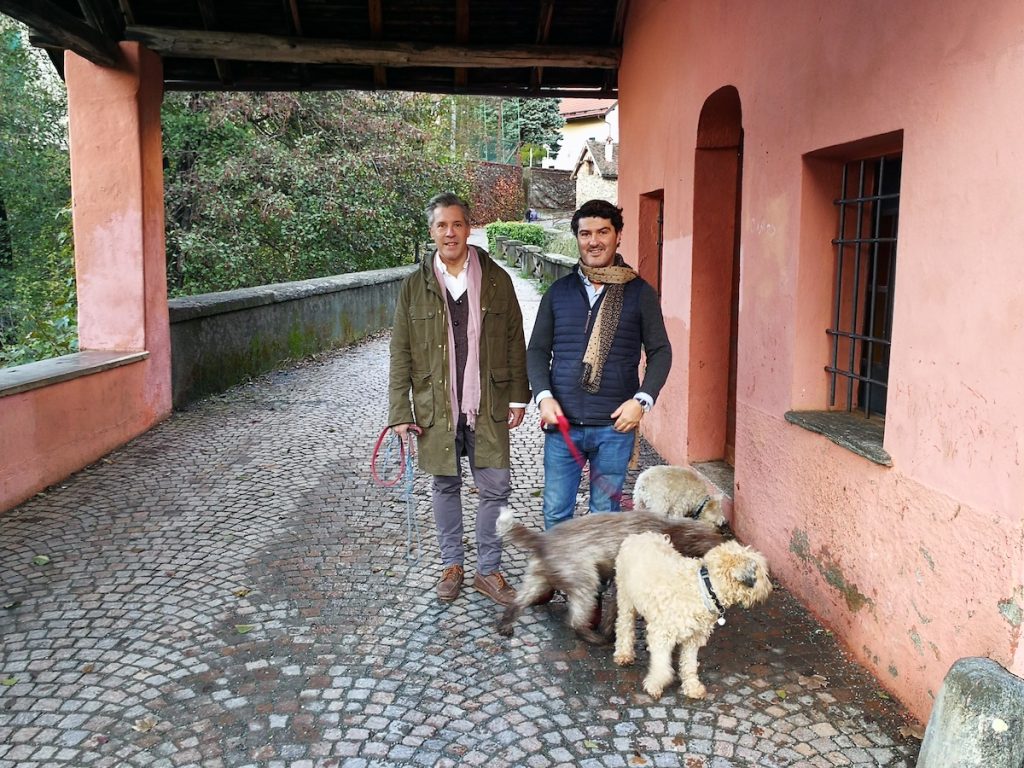
Tell us how you met?
Stephen: I was working for Versace and went to London on a business. At a reunion dinner with my old Cartoon Network team, * I met Ricardo at that restaurant. We became fast friends. After a couple of years, I told him that I was going back to America and said, “you wouldn’t want to come, would you? And he said he would!” That was 17 years ago.
[*Note that Stephen was the Creative Director for Cartoon Network and worked on its worldwide launch.]Ricardo, what did you think about moving to the US?
I loved it! First, we move to San Francisco and that was a bit of a shock coming from London. (I had only been to New York and the East Coast.) It was a big change moving the dog and everything! We were in San Francisco for about a year and then we moved to Dallas.
Stephen: I brought him to Texas to give him an authentic American experience.
Where did you learn English?
I moved to London when I was 19. I grew up in Lisbon and went to an English school there too. I think now my accent is a little more American.
Do you both speak Italian?
Stephen: Ricardo speaks much better than I do. I have been a slower learner. I think Europeans who know other romantic languages have an advantage. For all those years that I worked for Versace, we spoke English at work. The CEO was British and a lot of the designers were from London, which (in the fashion industry) is not uncommon. Because it was an international group and Donatella of course is completely fluent in English, she liked to have people speaking English. So, during my workday when you’d expect that I would be conversing in Italian, I wasn’t.
By the time that I got to Piemonte, I had shopping and dining Italian! Now that I’m in the hospitality business in Italy, I am working very hard on my Italian lessons.
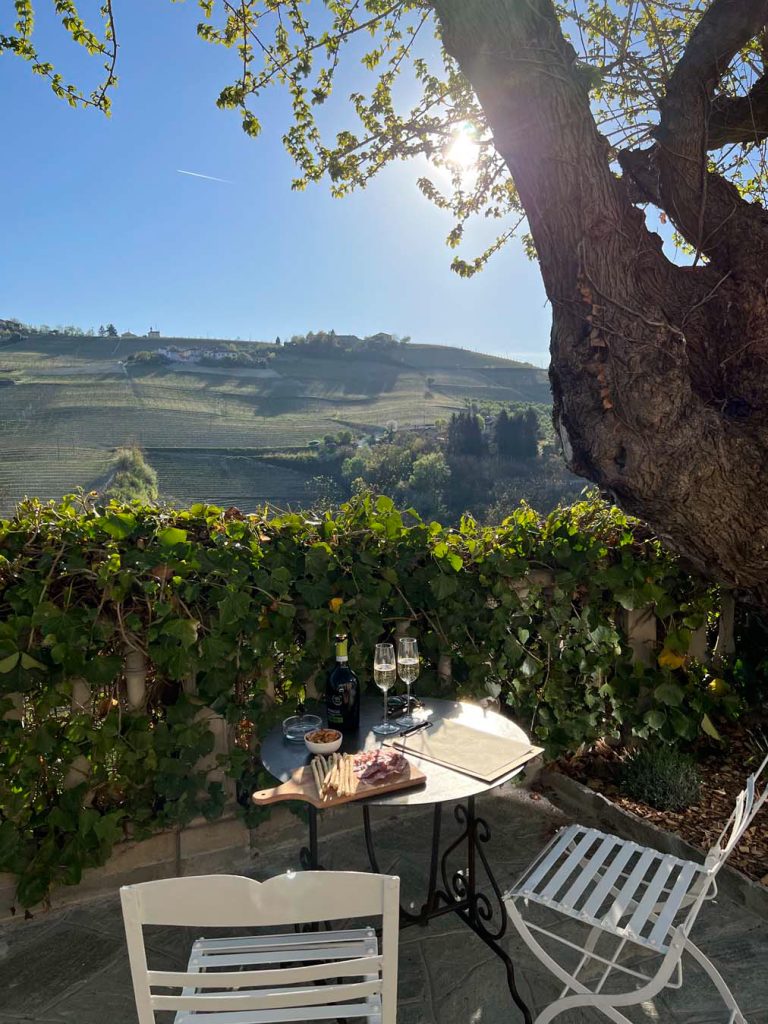
Do you feel that Italians also like to escape to the countrywide?
Stephen: It’s hard to generalize. Italians really love beach culture and the coast. I think it’s more common for Italians to be heading to the water every chance they get rather than to Piemonte, the countrywide.
Here, the folks who are buying second homes or moving to Piemonte, are mostly expats. Although we’re not a beach town, we’re only an hour and a half from Liguria. It’s nicely accessible even for a day trip.
What brought you from the US to Italy?
Stephen: When we were back in Los Angeles and I was working for Sony Pictures Television, a headhunter called me to ask if I’d consider moving back to Europe. A very wealthy British Indian family had bought a German fashion brand called Escada that is based in Munich. It’s a legacy brand in fashion, but not like Gucci, Bottega, or Prada. It’s a brand that during the ‘80’s and ‘90’s, had a great amount of success, especially in America. This family that owns the biggest steel company in the world, bought Escada. I was invited to fly to London to meet this family and talk to them about revitalizing the brand.
So, our first stop coming back to Europe was actually to Munich. We were there for a year when I received a call from Donatella Versace’s office in Milan, asking me to come for lunch. Thinking it was going to be a friendly catch up, when I walked in the door she said, “You have to come back.”
I went back to Munich that night and told Ricardo. I’ve never seen anyone pack so quickly!
Ricardo: Yeah, I was happy.
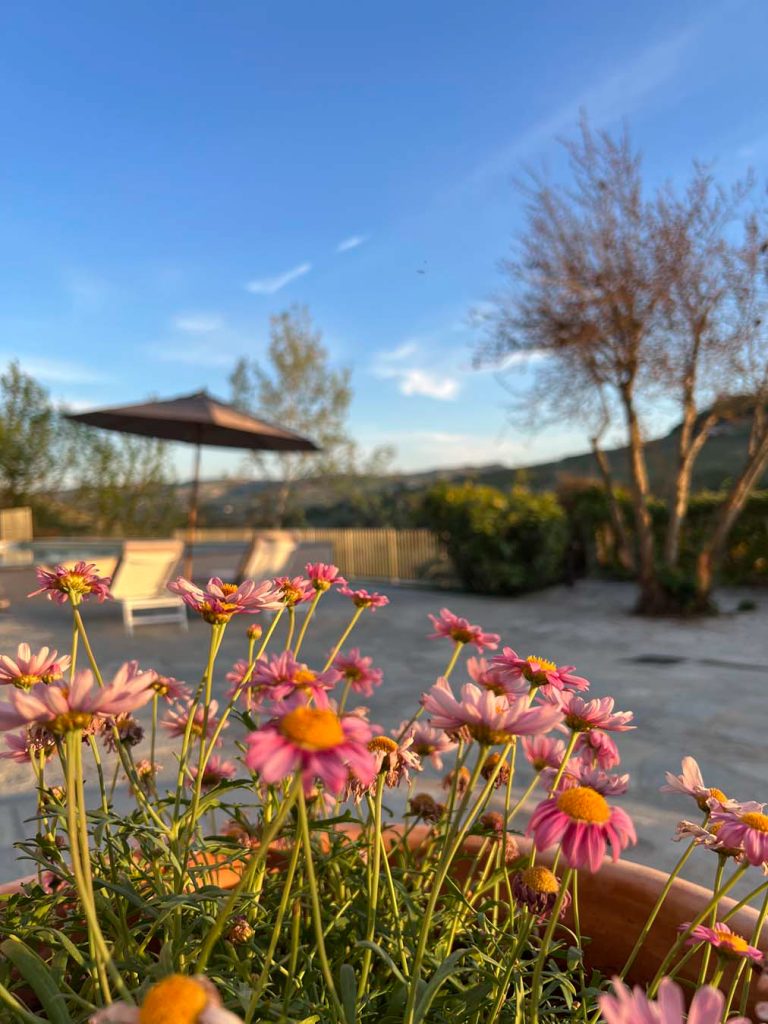
Ricardo, why were you so anxious to get back to Milan?
I don’t know. I liked Munich, but I much prefer living in Italy. I always loved Milan and Italy was the first place that I visited as a kid. I also have some Italian ancestors from Naples. I tell Stephen, I am very happy and I don’t want to move anywhere else. This is it!
Stephen: He really loves Italy!
Ricardo, in all the time moving from place to place, could you pursue your own professional goals?
Yes. In the US, I worked mostly as a graphic designer for various agencies. At the same time, we started renovating houses in Venice, California, and Dallas. It’s really a passion. I think I should have been an architect.
When did you decide to dedicate all your time to buying and restoring homes in Italy?
Stephen: Fashion and entertainment are both stressful industries. I was thinking about my next chapter. When Michael Kors purchased Versace, it was a logical time for me to thinking about my next move. I didn’t want to just run to another Italian fashion brand and I wasn’t interested in moving back to the States and live in New York City.
Ricardo mentioned a couple, but we’ve also renovated properties in Buenos Aires and Portugal. Even though we both had careers, our love is old houses, and we aren’t afraid of jumping into renovation and rescuing something.
It sort of feels like a calling for us and Ricardo is particularly talented at it. Then, we design and furnish them. Sometimes we sell or rent them or live there ourselves. Some properties we’ve found at auction. We find things that we can feel upside potential. In these 17 years, I don’t think there’s ever been a time that we are not working on a renovation project in addition to our jobs.
It really took off (or we went crazy) when we got to Italy. We are now operating in Piemonte and Puglia.
What triggered getting more aggressive is that first, there are so many gorgeous properties here. Many, like in villages where young people have left, are in distress. Italy is chock-a-block with gorgeous homes with nobody living in them anymore.
Civic Pride
I think that sometimes we are doing it out of civic pride: a responsibility to bring some of these great places back to life.
Sometimes we get properties ready for people so when they arrive from America, Britain, or Scandinavia, to move right in.
Because the prices are so affordable compared to the rest of the world, it can be very appealing, fun, and financially rewarding.
Have you tried the One Euro Home Project or are you buying at auction?
Stephen: Everyone has heard about the 1 Euro Homes, and it was a great idea. I think the golden rule in real estate is ‘location, location, location’. For us, we chose Piemonte because of its proximity to Milan. We ended up in Puglia because friends had gone there and we read so much about it.
For those who are just interested in getting a property anywhere in Italy, are not focused on a specific area, and want to start life in Italy on a budget, then 1 Euro Homes can be great.
Puglia is red hot right now and probably has been for the past five to ten years. The real estate market has been really crazy there and it’s driven largely by foreigners. You can buy a house or apartment in a nice town in Puglia for less than €20K and up. We’ve focused on one town.
The effect that I hope the 1 Euro Home Project has been not just to renovate these old buildings, but to reinvigorate some of these towns that have been forgotten. It’s going to be us expats that invest the time, money, and effort to bring these places back to life.
New Energy
When we moved into an older village (inhabited with mostly elderly), the residents were shocked and delighted. They loved the new energy because their sons and daughters had left.
Ricardo: In general, people are really welcoming. They appreciate seeing people renovate these old properties and bring them back to life.
Stephen: Our motto is to have the least amount of intervention as possible. We look for places with great old bones, charm, or character and bring them back to their former glory. At the beginning, some of the builders expected that we’d put (for example) in very modern and slick floors or recessed lighting. Some of this is because Italians have been living with old things for so long and they can’t wait to get rid of Nonna’s apartment. They want something brand new. For us, we don’t have this kind of history and architecture in the US. We try to recapture the original beauty and we purchase places that we know there is beauty to be discovered.
How many properties do you own?
Stephen: In Italy, there are ten. It’s not as extreme as it sounds. Villa Giara is a combination of what was originally three different homes. We got a house not too far from here to live in while all of this was going on. It was a construction project for years.
In Puglia, we didn’t buy all of them at once. We bought and renovated them one at a time and either sold or rented them. But we arrived at a good time in Puglia more than Piemonte. We could see the demand. People are buying things off the internet without even going to see them. That’s how crazy it’s gotten. Lots of Americans. Four years ago, we could feel what was happening.
There are tourist towns that are expensive and you’re not going to get great deals there anymore. We did find deals and we knew how to renovate and decorate them for not too much money.
For Sale By Owner
We like doing it although I can’t say it’s very rational or practical. But Puglia was an investment and foreigners can’t get over here as easily as us. Almost half of the properties here don’t even go through a real estate agent. When you are looking from afar on Idealista or Gate-away, it represents maybe 40-50% of what is available. The rest is for sale by owner and those properties won’t go through a real estate agent.
We’re here, drive up and down, and see the for-sale signs. We’ve also left notes if we see an abandoned property that we love, saying that if they ever decide to sell to call us. Often, they don’t even know that someone would want to buy it because to them, it was an old farm building or an ancestor’s home that no one has lived in for thirty years.
It’s the convenience of living in Italy and seeing all the for sale by owner signs.
Talk about your experiences with bureaucracy and access to financing.
Stephen: I know that lots of people are afraid to try and do a project in Italy when they don’t know anyone, have full command of the language, or have done a renovation here. It can be intimidating. I would say yes, we did have some experience doing this in America but, by no means, we were experts.
We tend to have a vision of what we are trying to achieve and can articulate that with the builder.
Ricardo: In Italy, you always need to have the project approved by someone who is legally able to approve it. You need either a geometra (surveyor) or an architect. We’ve worked with several geometras. If you want to do the design and layout yourself, I think that a geometra is all that you need. I suggest that you get recommendations for builders because that is who you are going to work with every day. If you’re lucky they’ll speak a bit of English. If not, you can probably get by.
For Villa Giara, it was mostly me, Stephen, and Claudio the builder.
Expat Network
Stephen: We didn’t move to Italy to hang out with expats all the time, but an expat network can be quite helpful for recommendations and suggestions. Even resources like you (Live in Italy Magazine) and all these things that bring together people who love Italy and want to create a life here. The folks who have already done it before are invaluable to steer you in the direction of good, honest, and reliable people.
For bureaucracy, I would honestly say that it has not been more complicated for us than buying in America.
Ricardo: It may be slower.
Stephen: A little bit. We have not encountered more paperwork. If you’ve been directed to a professional notary, geometra, and work with a good builder you’ll probably be fine. Now, Italy is a bit different when buying ancient properties. Real estate is commonly left by parents to siblings and is often the primary asset of the family. I would steer away from those kinds of purchases or ones with an unclear history of title.
Our purchases and transactions have been professionally handled and we have not encountered any of those nightmarish situations.
Financing
With respect to financing, we have paid cash for properties and have done mortgages. I have to say that it wasn’t more difficult obtaining a mortgage than probably in the States.
[Note that Stephen and Ricardo are both residents of Italy.]A lot has to do with working with reliable people and asking expats or even Italians who have come before you. Certainly, I have friends who have had more challenging situations than us. It tends to happen on bigger projects. We have been fortunate and pretty happy.
Expectations
Don’t come to Italy and bring a New York or London or Miami mentality and tell them how things should be done or what timetable that everything is expected. You must leave behind all those expectations about how things should work or how things work at home. It’s their country and not mine or yours. The last thing that you want to do is offend or disrespect your building team. It happens and that’s why sometimes things go south because we come from other places.
Ricardo, coming from a similar culture, was it easier to adapt?
Yes, the language although it sounds different, is pretty much the same. It was easy for me to adapt and culturally too. The bureaucracy is pretty similar. I enjoy the Italian bureaucracy a bit and their way of working! It’s the expectation. You can’t come here imagining that you are renovating an apartment in London or New York, and everything will be done as you like. You need to work with them and make them all your friends.
Stephen: The fastest way to get an Italian furious is tell them, “Oh, in New York I could get this done in three days.”
It doesn’t matter how things work at home, you will get there, and you’ll probably be very happy with the results.
There are many foreigners who have renovated homes here. Even though it was challenging, frustrating, or not what they expected I can’t think of too many who aren’t absolutely delighted about how things worked out. And they’d probably do it again.
Villa Giara
Ricardo: Finally, we finished everything about two weeks ago. It was me kicking the builders out and guests came in.
Stephen: It was like hammers down at midnight and the next day filled with visitors. Just to take a step back, about what Villa Giara is. Our weekend getaway from Milan has now turned into what we call an Italian country inn. We ended up buying the first house, an old farmhouse, in Calosso (the middle of wine country). It’s north of Tuscany and south of the lakes region (Como, Maggiore etc.) As for cities, we are in the triangle of Milan, Genoa, and Turin.
Calosso is a very beautiful hill town within the triangle of wine areas: Alba, Asti, and Acqui Terme. The hills are even higher than Tuscany and we look at the Alps. It’s really beautiful and you have elevations all around you lined with vineyards, dotted with houses, and topped with castles. It’s not a discovered area like Tuscany or Sicily. It’s been a little below the radar, but last year Lonely Planet named Piemonte the ‘Number 1 region in the world that you must visit’.
Villa Giara will have nine guest rooms, all with ensuite private baths. There’s a large swimming pool and because it sits on top of a hill, there are panoramic views of the vineyards and village of Calosso.
We just completed it and this is our first time getting into the hospitality business.
Where do you anticipate guests will come from?
Ricardo: I think in Piemonte, you get a lot of tourism from Scandinavia (Norway, Denmark, Sweden), but also the Netherlands, Switzerland – northern Europe. We have some requests from the west, but not as many. I know that tourism from the US has gone down, obviously because of the pandemic in the past two years. However, it’s starting to pick up again.
What is your definition of an expat?
Stephen: I think to be an expatriate, you have to be a curious person and adventurous person. You can’t cling to what you’ve always known and the comforts of home.
You are someone who is charting points unknown and looking for new frontiers.
When I was young, I went to Japan and was able to travel to other places as a teenager. I knew then that I certainly didn’t want a life where I’d stay in the town that I grew up in. I wanted to be exposed to different people, places, and things. I also wasn’t afraid of going out and having some adventures and getting uncomfortable or maybe seeming foolish. The jolt of the new and unfamiliar is very exciting to me. I think that it’s these things that an expat thrives on.
Ricardo: For me, it’s kind of the same. It’s experiencing the different cultures. I moved when I was 19 to London and was there for 13 years. I love the adventure of moving and learning a new language.
I think being an expat is living an adventurous life.
When we move between the two regions of Piemonte and Puglia, it’s like experiencing it all again.
Besides friends and family, what do you miss about your native countries?
Ricardo: I moved when I was 19 and although a lot of my friends were either studying or working abroad, many have now returned. That’s one of the reasons why I like living in Italy because I’m only two and a half hours from home.
Stephen: I would say this is truer in the pre-Covid days, but when we were lived in America or London, we went to the movies every week. It was a shared passion. Here because of my language deficiencies…it’s just less of a movie culture. They get the blockbusters but in LA and London, we’d get to see independent films. Streaming of course helps, but we’ve always loved having a movie theater nearby.
Cuisine Choices
I would also say cuisine.
Ricardo: That’s really difficult. Only in a big city like Torino or Milan.
Stephen: I can’t emphasize that enough. It’s something that you give up coming here unless you are in the big cities. By and large, you’re going to give up all of that. Of course, the good thing is that Italian cuisine is one of the best in the world, so you are generally eating something delicious and it’s quite inexpensive.
If you are accustomed to that, you need to learn how to cook all those things you love or you make sure that you venture to a large city and get your fill. Also remember that if Italians don’t cook with it, most likely it won’t be on the store shelves.
It’s funny to be someone in Italy and complaining about food!
Where do you think you’ll be in the next 10 years?
Ricardo: Maybe slowing down, but always having some renovation going on. Now, we are so busy with Villa Giara and getting it going. I think we’ll still be in Italy.
Stephen: We’ve made a big commitment to Italy — financially and otherwise. We love Italy and believe in it. The lifestyle as far as we’re concerned, is pretty hard to top. It is probably the most beautiful country in the world – landscape, architecture, art, everything rolled in. It’s a feast for the eyes every day. We’re spoiled; we get to absorb and enjoy all that beauty every day. I don’t know where we’d go after this. I can’t see us returning to America. I am an American and feel very comfortable as a European.
As far as more properties, no! I think it was a creative outlet and shared passion. Together we are a good team. We were making great things happen and we feel that we were making a great contribution to Italy. But I think that bug has passed. Now, we think Villa Giara will be successful so we’ll focus on this and make it as good as it possibly can be.
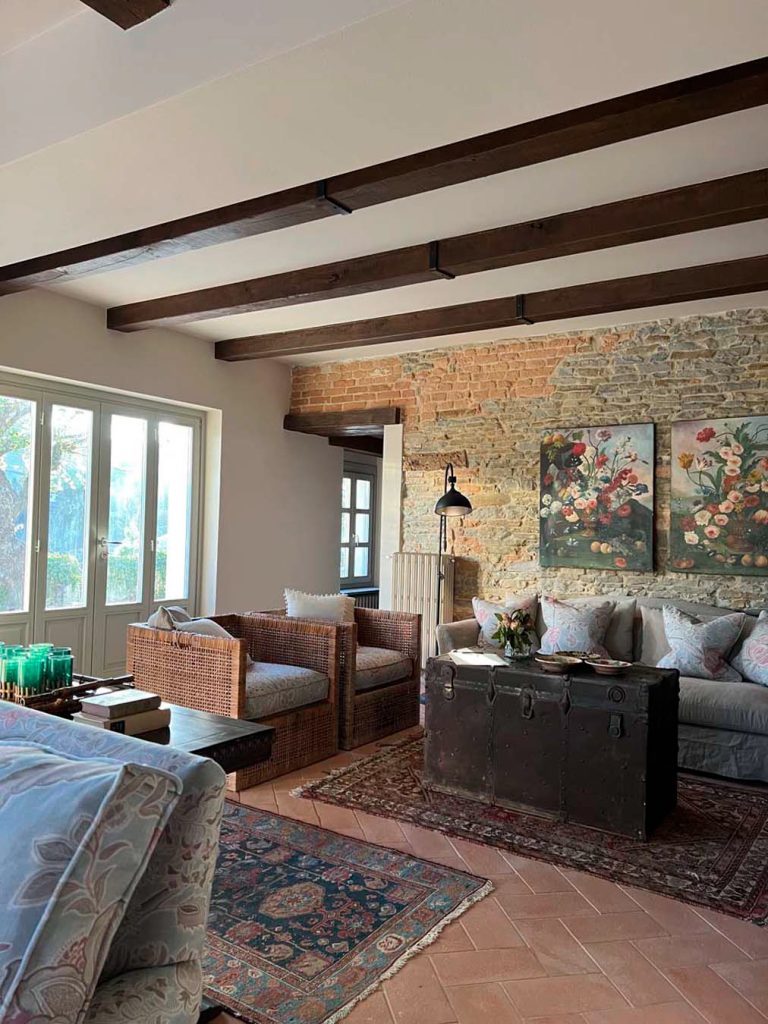
Find out more about Villa Giara
Website: https://www.villagiara.com/
Instagram: @VillaGiara
Facebook: VillaGiara
Other Links
Tripadvisor: https://www.tripadvisor.com/Profile/villagiara
Paradise Portfolio: http://www.paradiseportfolio.com/
diGristi: https://www.digristi.com/

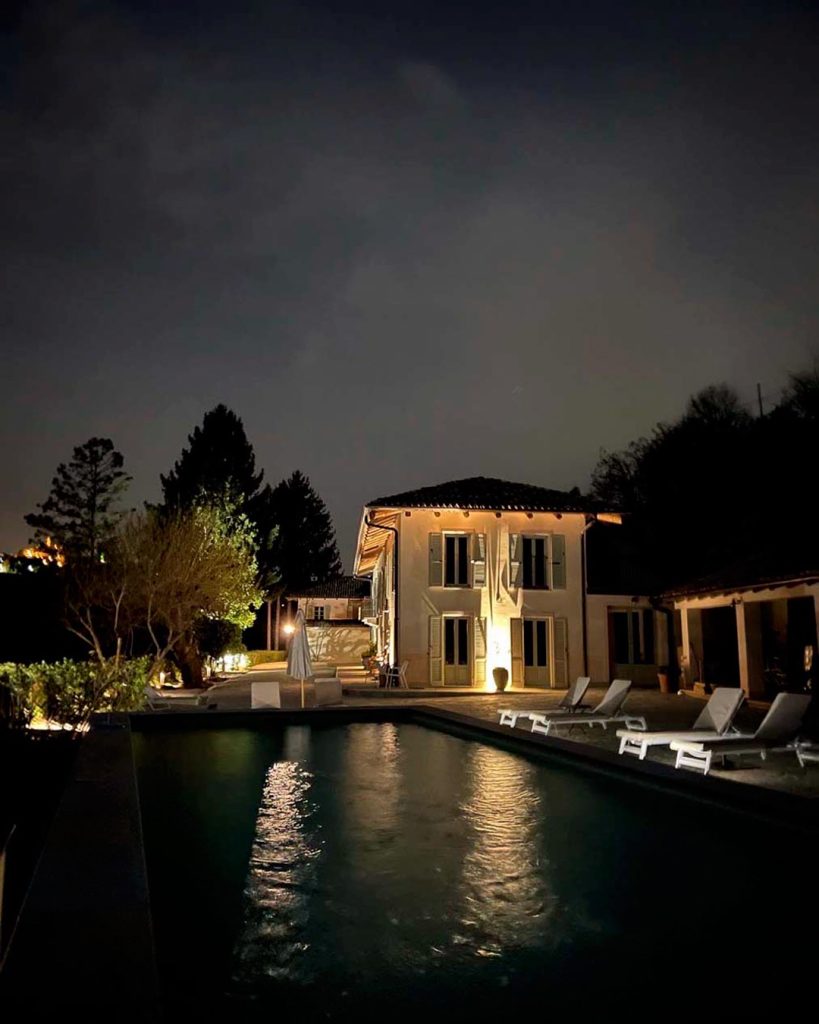
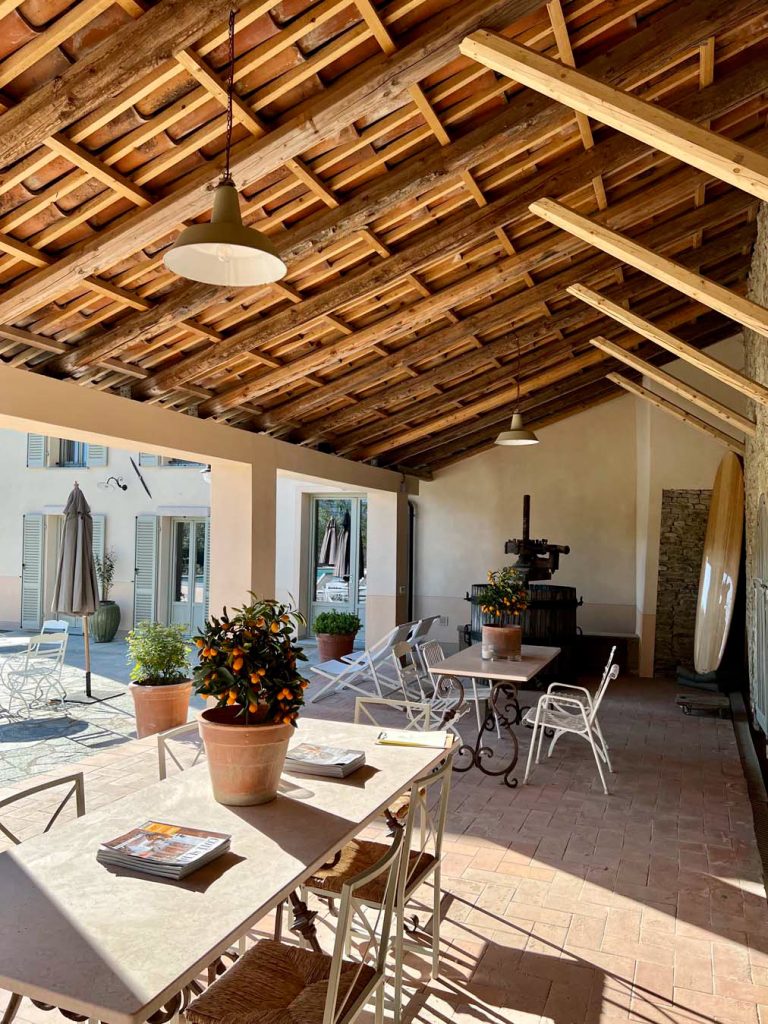
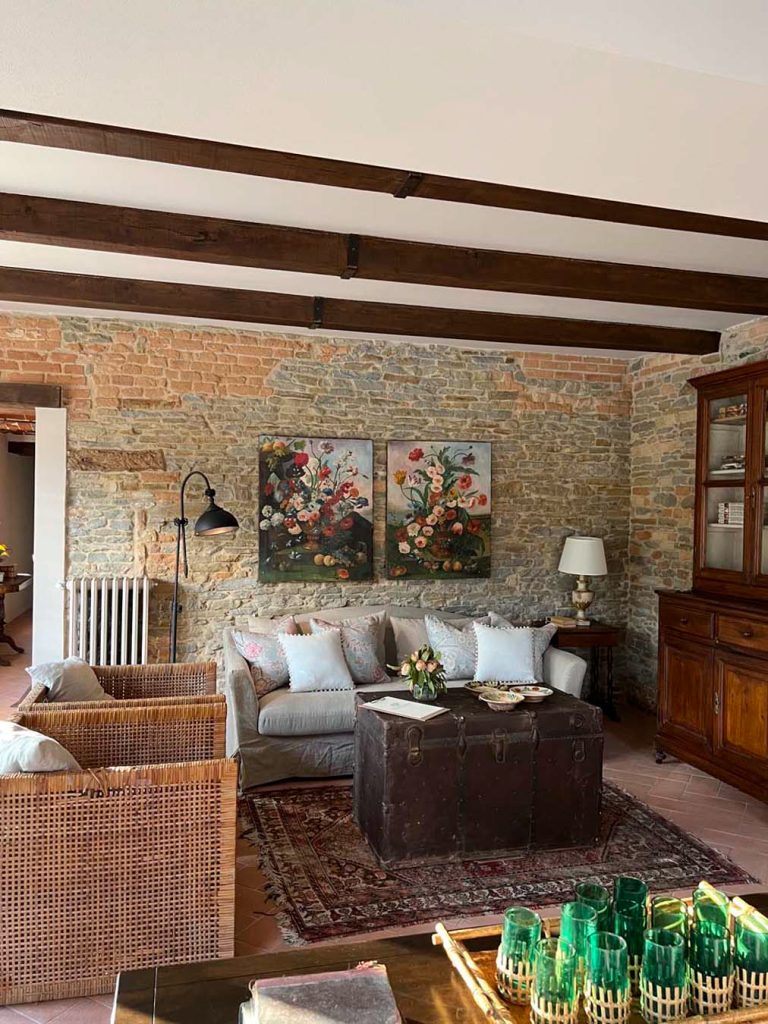
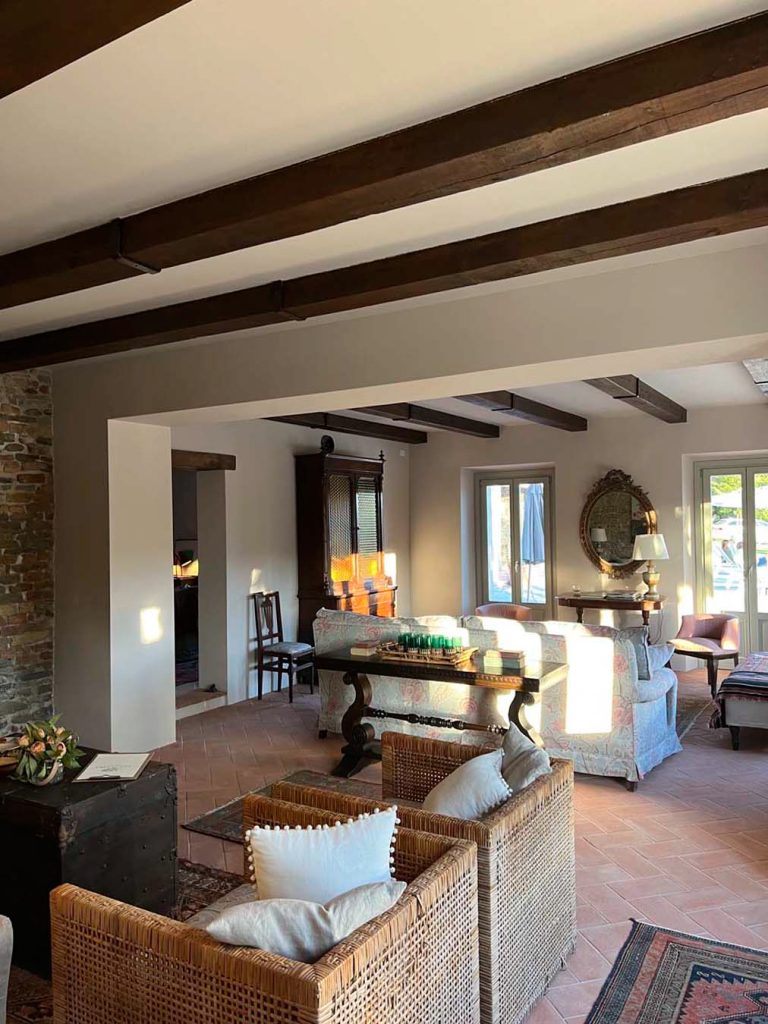
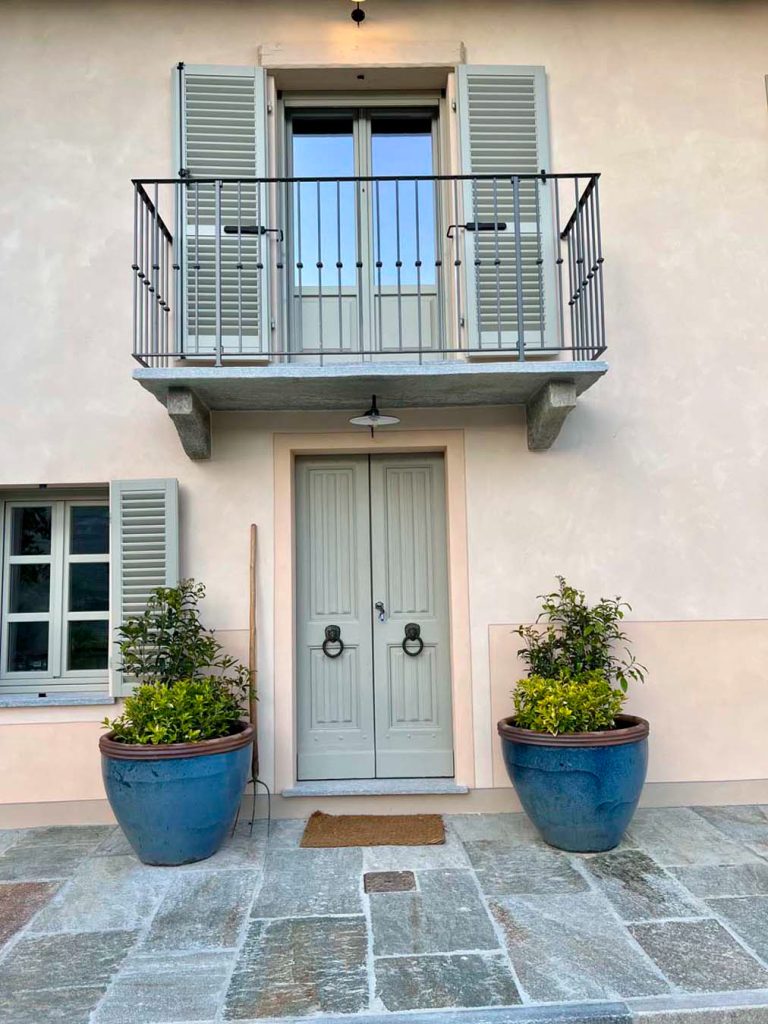
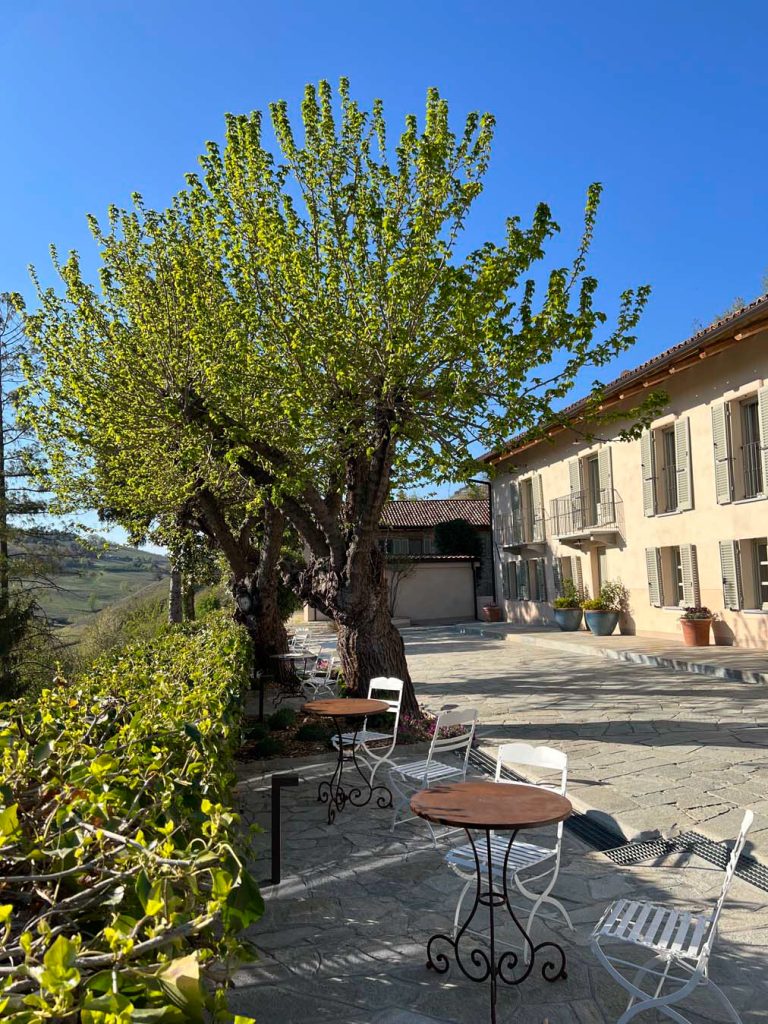
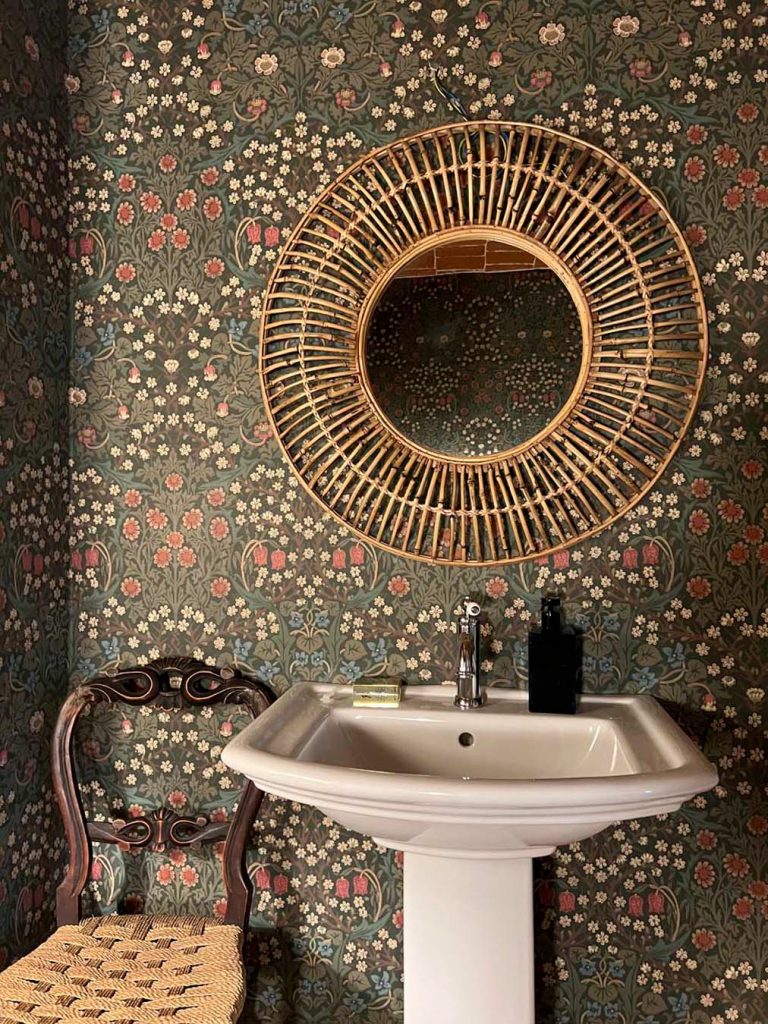
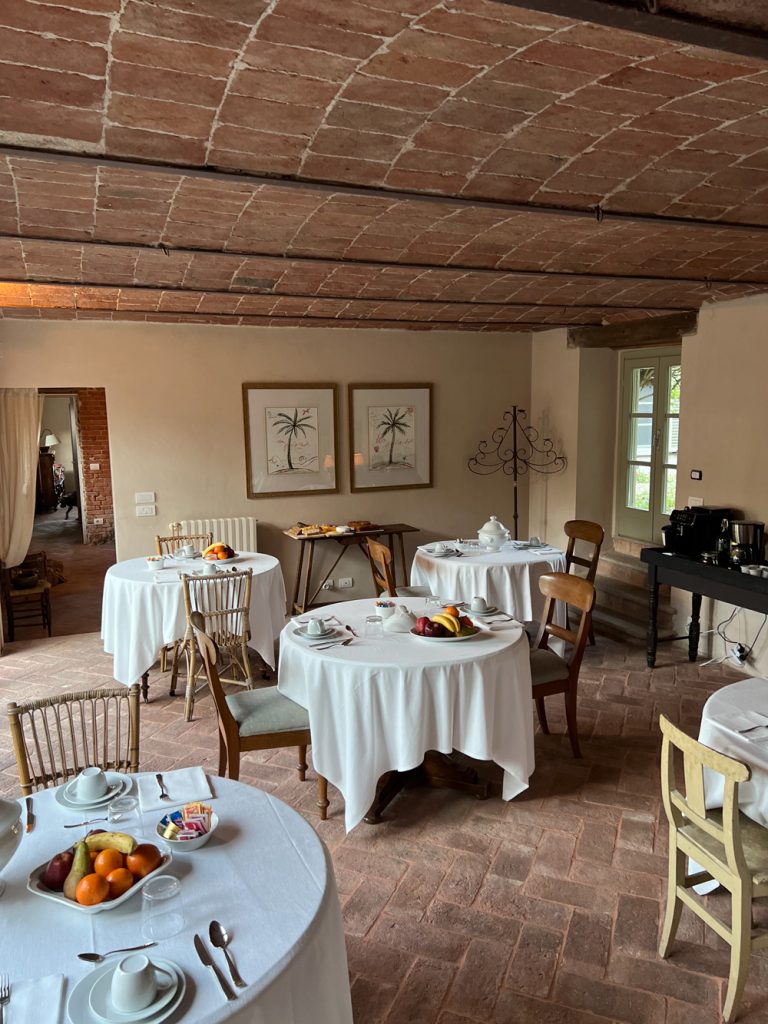
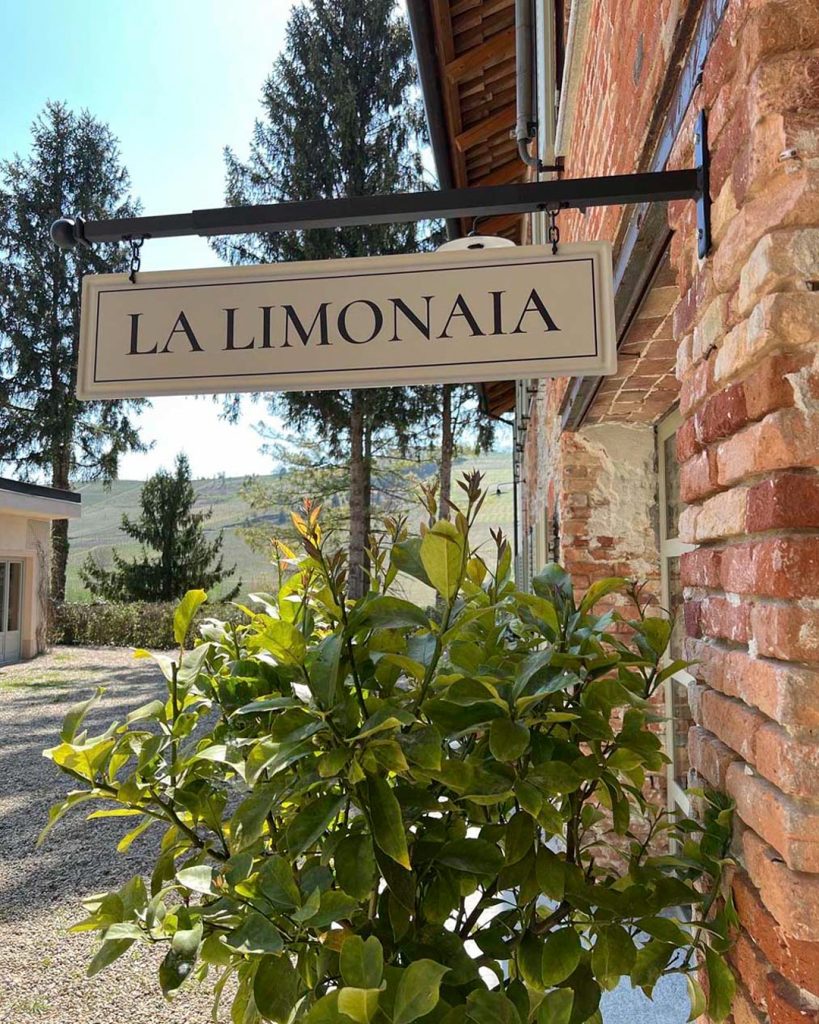
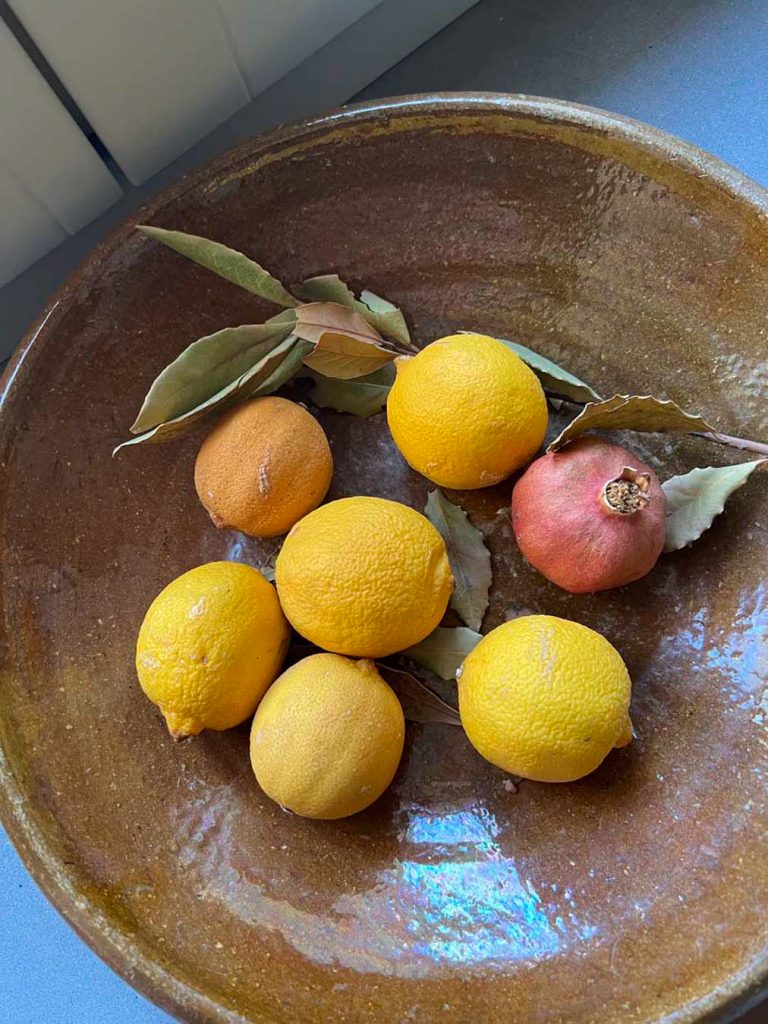


Great article alwaus a pleasure to read about couragous like minded people.
Will follow your magazine with interest.
Dear Alida, Thanks so much for your lovely comment and for reading Stephen and Ricardo’s story. We hope that you watch the full version on our YouTube. Yes, they are courageous. 😍